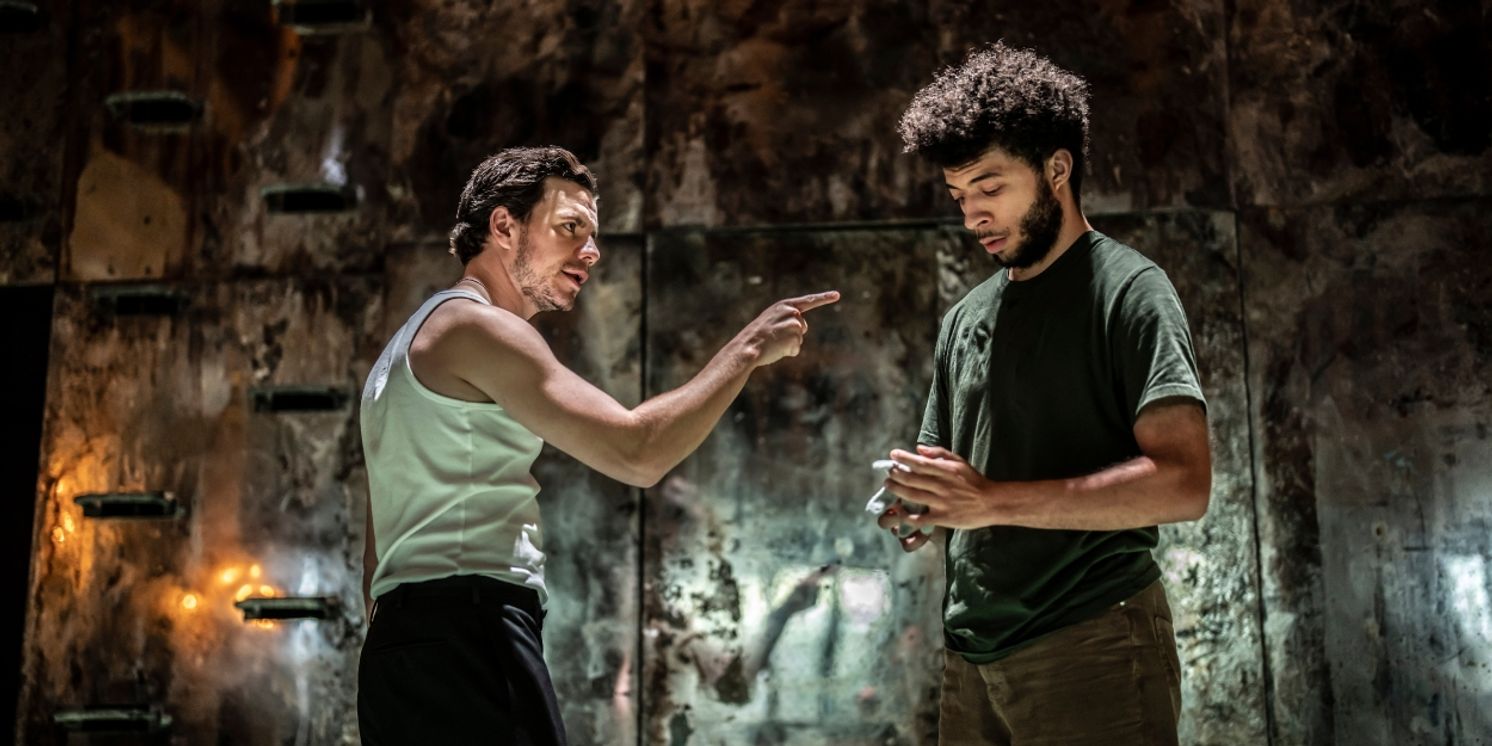Review: HENRY V, Shakespeare's Globe
Henry V to the Sam Wanamaker Playhouse for the first time in its history.

![]()
Winter has come to the Globe and it brought Henry V to the Sam Wanamaker Playhouse for the first time in its history. Holly Race Roughan directs William Shakespeare's patriotic tale of pride, King, and country in a seductively lit evening that desperately wants to be a fresh anti-imperialist take but stumbles lightly on its own steps.
The production - created in collaboration with Headlong Theatre, Leeds Playhouse, and Royal & Derngate - suggests a number of progressive, contemporary ideas that don't quite take root fully.
Race Roughan spins an uncompromising view on immigration and colonisation intertwined with the exploration of masculinity under the lens of the effects of power on the male emotional sphere. The direction toys with touch and physical proximity at the start, but this aspect of the project is quickly discarded at the benefit of other leitmotifs. She introduces a new ambitious king who initially dissociates the performative side of his public persona from the intimate realm of his emotions, but ends up being overtaken by purpose and determination.
Portrayed by Oliver Johnstone, Henry cowers under his father's thunderous "cloud of dignity", recoiling when he beckons him closer and wincing under upon contact. There's almost a psychopathic glint that comes and goes from his eyes. The signs of the wayward Prince Hal, the "lovely bully", gradually disappear under a mask of callous resolve and kingly boldness as he approaches France.
This Henry, however, slips into cruelty easily, offering a flawed, reproachable, controversial figure rather than Shakespeare's traditionally charismatic hero. Johnstone addresses himself instead of his troops with the uber-famous "Once more unto the breach, dear friends, once more" speech, sitting on the floor, on the brink of a crisis of confidence. He is at war with himself as much as he is with the rest of the world. It works, but it doesn't stick as he tips into barbarity, his desire to prove himself smothered by his pride.
The small Playhouse obviously demands a stripped-down version of such a play, but Race Roughan goes a step further and makes a show that at times feels like a staged reading in late rehearsals. The actor's jackets - used to deliver multiple characters - often litter the balconies at the side while they sit on chairs awaiting their turn in what's a fairly Brechtian approach. The company announce the scene headers as they enter, announcing who's who involved and where it's set. It's good for the uninitiated, but it's inconsistent. It, unfortunately, all looks rather uninspired on Moi Tran's ambiguous set while anxious strings accompany some of the action.
The director turns the piece upside down at the very end. After forcing Princess Katharine's hand in marriage, she appears before an officer to take her Life in the UK test that will grant her permanent residence. He asks about the Forced Marriage Protection Order, the imperialist tendencies of the country, extremism, Shakespeare, the EU, the constitution, slavery, and more while this child-looking woman struggles to understand and meekly answers. It's as jarring as it should be, but way too on the nose for such nuanced material. It's at odds with the rest.
Joséphine Callies' casting is, however, truly inspired. She looks prepubescent in her youth, pushing the dynamic with Johnstone into disturbing territory immediately. The company sees some gender blindness when it comes to roles, with many male characters played by women as it's become custom for the Globe. Among these, Eleanor Henderson gives a loved-up Prince Louis who gets a bit touchy with James Cooney's Duke of Orléans and Helena Lymbery is an excellent Henry IV who bullies and manhandles his son on his deathbed.
It's an immense task to revolutionise a play whose meanings and morals are so embedded into its tradition. This production has the right ideas, but too many concepts are at stake. By the finish line Henry V has not become the anti-hero Race Roughan wants us to see, but the villain and the very issue of the drama. Too invested into the journey of his psyche to fully appreciate her argument on the spot, we focus on the finger that points to the moon rather than the moon itself. That can be a problem.
Henry V runs at the Sam Wanamaker Playhouse until 4 February.
Photo Credit: Johan Persson
Reader Reviews

Videos

